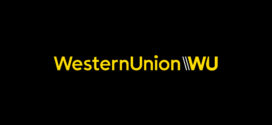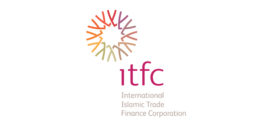SunGard Identifies Ten Trends Influencing the Banking Industry for 2012 and Beyond
Singapore, March 22, 2012 – David Hamilton, president of SunGard’s banking business, said, “For many banks, the question has not been ‘how do I succeed’ but ‘how do I survive’. Fundamentally, the global banking model has shifted and a transformation is occurring in how money is being managed as banks strive to re-build trust and create value for their shareholders. A focus of investment for banks is on ensuring regulatory compliance and in assuring shareholders that they fully understand and can manage their risk exposures. Ultimately these investments need to drive more informed strategic decision-making and to help enable a return to profitability for the bank.”
SunGard has identified ten trends shaping the banking industry in 2012 as banks look to capitalize on change through transparency, efficiency and networks.
1. Banks will need clarity on their cost of cash to help ensure that while regulatory requirements for capital adequacy are met, cautionary surplus cash and capital reserve strategies do not impact too heavily on return on equity (ROE), hindering organizational profit and growth objectives.
2. Retail, commercial and private banks are striving for robust customer managementto optimize customer relationships and rebuild the trust lost as a result of the financial crisis.
3. With macro-economic factors causing volatility in customer behavior, banks need to safeguard deposits and continually validate their lending strategies to improve risk-adjusted profitability
4. Banks are seeking an integrated, enterprise approach to strategic risk management to help meet regulatory requirements and allocate capital more efficiently.
5. Banks are also looking to understand the true risk profile of their individual businesses to help them make decisions about asset divestiture and potential acquisitions, in order to re-organize their business models to more risk-averse areas.
In the longer term:
6. Exponential growth in the use of mobile devices worldwide means banks need an integrated approach to mobility – as customers increasingly expect banking services to be ‘always on and always accessible’.
7. Banks are under increasing pressure to improve business transparency, given the rising impact that ‘popular’ politics andspecial interest groups have had on the regulators and on government policy.
8. Financial intermediation will structurally change as alternative models of banking emerge, as technological innovation and deregulation accelerate ‘non-banks’, in particular to financial inclusion programs for the unbanked/marginally-banked.
9. Tension between regulators, markets and investors will continue as bank regulators demand greater transparency and lower risk, while bank investors continue to seek higher levels of returns on their investments
10. Technology innovation and adoption rates mean retail, commercial and private banks are re-examining how they capture, segment and service their customer base, as existing strategies for demographic profiling by gender, age and ‘key life events’ cease to provide accurate insight into customer expectations.
Michael Versace, research director at IDC Financial Insights, said, “The disciplines of risk and the role of analytics are quickly becoming the new core in banking – redefining in some sense what is “core” in banking. While lending, deposit taking, customer relationship management (CRM), treasury and other services remain of significant importance, the transactions and services around these traditional capabilities are quickly becoming table-stakes– commodity capabilities required simply to be in the banking business. Make no mistake that transaction and customer servicing will separate the best from the adequate banking providers, but analytics and the ability to efficiently and effectively exploit big data, advanced modeling, in memory and real-time decisioning across channels and operations will help improve margins and distinguish those that thrive in uncertain and uneven markets, from those that fumble.”
SunGard’s Ambit solution suite can help banks successfully navigate these challenging times by helping ensure regulatory compliance, enhance the multi-channel experience, improve customer trust, drive efficiency into operations and ensure a clear insight into enterprise-wide risk exposures.
 Cash And Trade Magazine For Cash and Trade professionals in the Middle East
Cash And Trade Magazine For Cash and Trade professionals in the Middle East





One comment